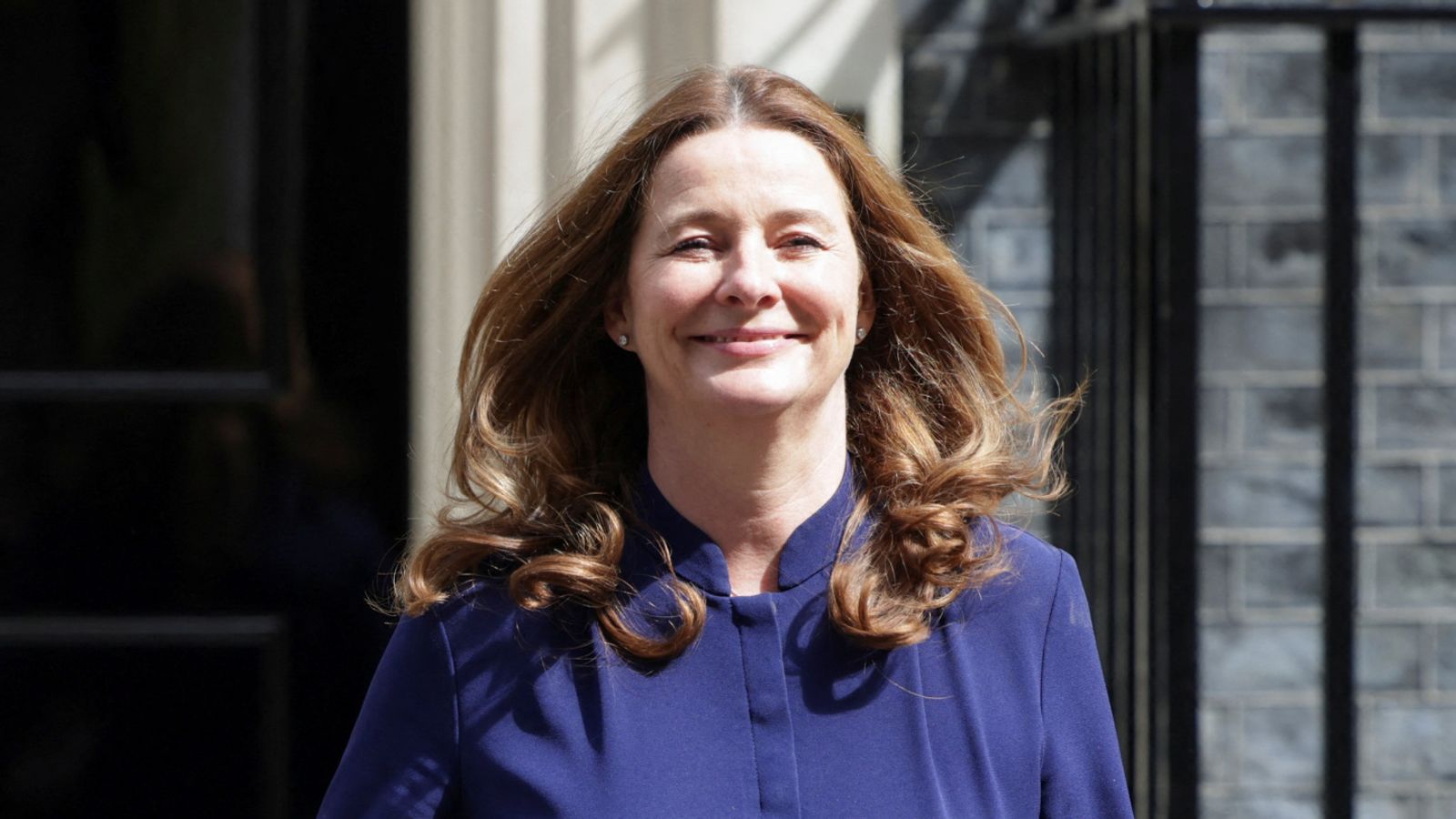Education Secretary Gillian Keegan has been criticised for suggesting employers won’t ask pupils about their A-levels in a decade’s time.
Ms Keegan said students “shouldn’t be disappointed” if their results were not what they had hoped for as top grades fell from last year – although they remain above pre-pandemic levels.
Please use Chrome browser for a more accessible video player
The cabinet minister told Sky News: “Somebody asked me ‘What will people ask you in 10 years’ time?’
“They won’t ask you anything about your A-level grades in 10 years’ time.
“They will ask you about other things you have done since then: what you have done in the workplace, what you did at university?
“And then, after a period of time, they don’t even ask you what you did at university.”
She added: “It is really all about what you do and what you can demonstrate and the skills that you learn in the workplace.”
A-level results – live: Clarkson’s annual tweet backed by PM; regions with most top grades revealed; popular chain offers free chicken
A-levels: Students braced for lower results as exam boards return to pre-pandemic grading
Almost 100,000 fewer top A-level grades could be awarded this year, expert warns
Joy and anxiety as results in – A-level results live
Labour’s shadow education secretary Bridget Phillipson branded Ms Keegan’s comments “incredibly rude and dismissive” – and accused her of “talking down England’s young people”.
She said: “This is a nerve-wracking day for young people who’ve worked incredibly hard.
“The last thing that they need is a secretary of state offering comments like that.
“And it really does add insult to injury coming from a government that completely failed to put in place the kind of support that our young people needed coming out of the pandemic after all of the disruption they’d experienced.”
The cohort of students who are receiving their A-level results did not sit GCSE exams and were awarded teacher-assessed grades during the pandemic.
Education leaders have warned that this year’s group could face disappointment as they may have higher expectations after receiving record high GCSEs in 2021.
Ms Keegan attributed the fall to the grading system returning to what it was pre-COVID, saying it was important that it “holds its value” and is “well respected”.
But asked what she would say to those who might be disappointed with their grades, the cabinet minister told Sky News: “Well, they shouldn’t be disappointed – they have just done an amazing job.
“They should be congratulating themselves and I want to congratulate them because they’ve worked so hard.
“They have faced disruption. They have been the cohort that’s gone through the pandemic and also faced other disruption as well.”
Ms Keegan went on to say that A-level pupils will “still get the same access to university” as those in previous years.
“The whole grading system will be back to normal and so the universities will calibrate to that,” she said
“And in fact they already have done so in their offers to some degree – they have already taken that into account.
“So we have worked with the universities so they understand it, with the admissions officers. And also with businesses, so they understand it.
“Everybody knows that these are different conditions to the teacher-assessed grades and even last year, which was part way between the two systems, more similar to what they have done in Northern Ireland and Wales.”
Read more:
Government to ‘crack down’ on ‘rip-off’ university courses
Today’s results show A* and A grades were awarded to 27.2% of students, compared with 36.4% last year, 44.7% in 2021 and 38.5% in 2020.
However, the number is up by 1.8% compared to pre-pandemic levels, when 25.4% of A-level entries were awarded A or A* grades.
The overall pass rate – the proportion of entries graded A* to E – has fallen to 97.3% this year, which is lower than 2022 (98.4%) and the pre-pandemic year of 2019 (97.6%). In fact, the rate is at its lowest level since 2008 when it stood at 97.2%.
Ms Keegan later defended her comments and rejected the suggestion it was insensitive to students worried about their grades.
She told reporters at the City of London Academy Islington, in north London, that “it is true, it is just real”.
“It’s an important step to get to your next destination, but when you’re a couple of destinations further on there’ll be other things that they look at,” she said.







